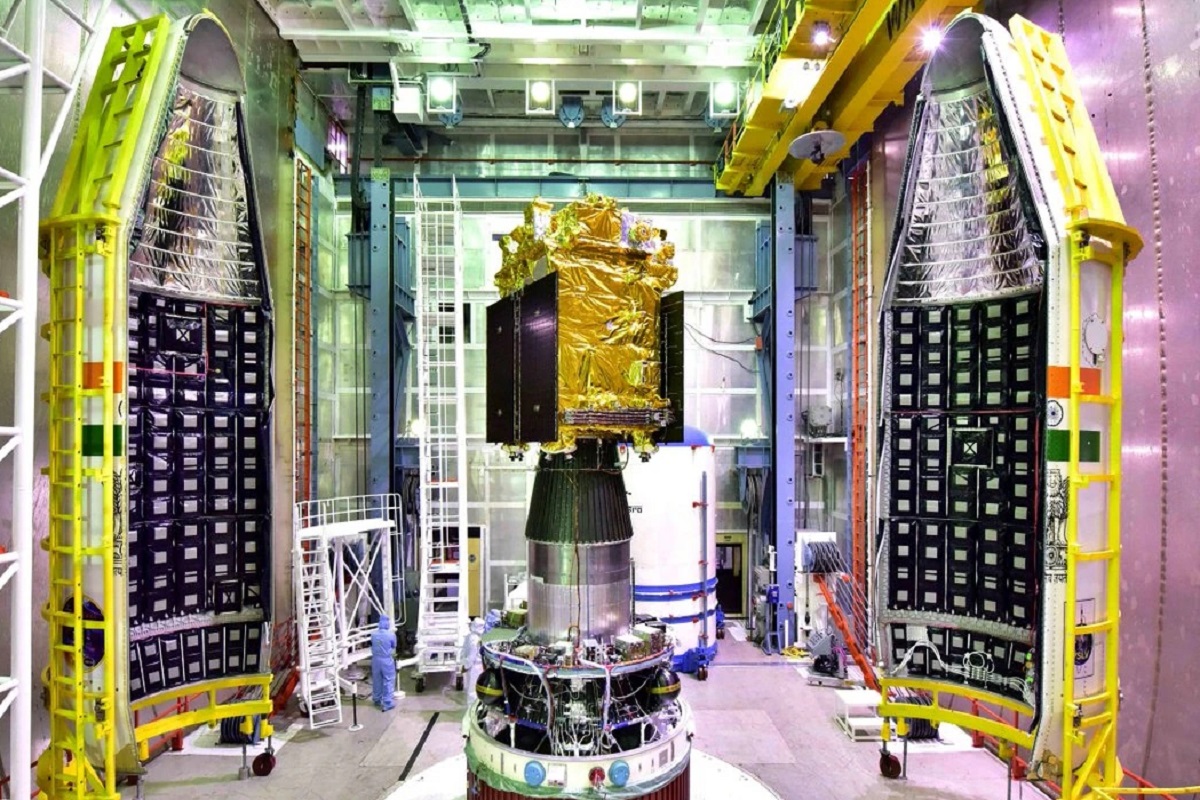Abhijeet Iyer Mitra in conversation with ‘The Statesman Talk’ | Why did ISRO do so well?
Abhijit Iyer Mitra, in conversation with '#TheStatesmanTalk,' discusses PM Modi’s contribution towards the DRDO.

Aditya L1 image taken during launch rehearsal. (Courtesy: ISRO)
Aditya L1 Mission Launch: The Indian Space Research Organisation (ISRO) on Wednesday successfully completed the launch rehearsal of Aditya L1, India’s first space-based observatory class spacecraft to study the Sun. The Aditya L1 mission will be launched from Andhra Pradesh’s Shriharikota on September 2. The launch of Aditya L1 is considered one of the most ambitious missions of ISRO after Chandrayaan 3. Aditya L1 spacecraft will be placed in the halo orbit around Lagrange Point L1 in the Sun-Earth system.
Taking to X, formerly known as Twitter, the ISRO informed about the completion of Aditya L1 launch rehearsal and shared some of the photographs giving space enthusiasts an inside look of the spacecraft. The pictures were taken just before Aditya L1 was being encapsulated into the payload fairing.
T-3️⃣ days: The Launch Rehearsal of the PSLV-C57/Aditya-L1 mission has been successfully completed!
Advertisement
Here are some new pictures of the #AdityaL1 spacecraft from just before being encapsulated into the payload fairing! #ISRO pic.twitter.com/qAIuQaGcfg
— ISRO Spaceflight (@ISROSpaceflight) August 30, 2023
Aditya L1 spacecraft will carry seven payloads – Visible Emission Line Coronagraph(VELC), Solar Ultraviolet Imaging Telescope (SUIT), Solar Low Energy X-ray Spectrometer (SoLEXS), High Energy L1 Orbiting X-ray Spectrometer(HEL1OS), Aditya Solar wind Particle Experiment(ASPEX), Plasma Analyser Package For Aditya (PAPA), and Advanced Tri-axial High-Resolution Digital Magnetometers.
The journey of the Aditya L1 spacecraft to the Lagrange Point L1 will be 15,00,000 km from the Earth and it will take 125 days to cover the distance. The staggering 1.5 million KM journey of Aditya L1 will not be an easy ride and involve several risk factors.
According to ISRO, the spacecraft will be initially placed in a low-earth orbit before being launched towards the Lagrange Point L1. Once in the low earth orbit, the orbit will be made more elliptical, and on-board propulsion will launch the spacecraft towards Lagrange Point L1.
Advertisement